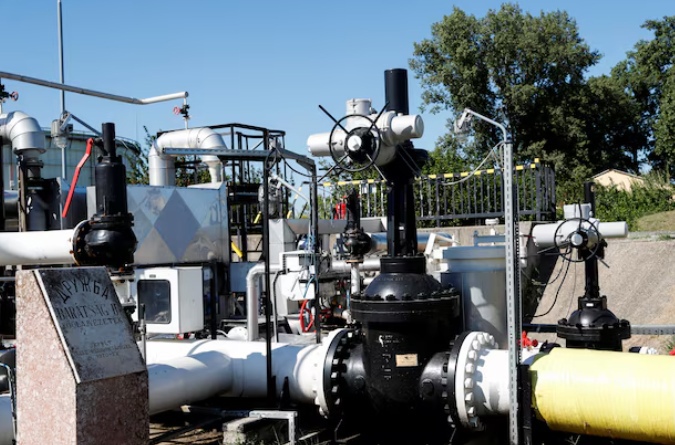Hungary faces a nightmare scenario of power cuts and fuel shortages after Ukraine imposed a partial ban on the transit of Russian oil through its territory, POLITICO reports.
Kyiv imposed sanctions last month blocking the transit of oil sold by Moscow’s largest private oil company, Lukoil, to central Europe, partially negating an exemption to sanctions set by the European Union to give countries dependent on Russia extra time to refuse deliveries. Ukraine’s goal is to cut a key source of revenue for the Kremlin’s military branch. But the move raises fears of supply shortages in Budapest, which depends on Russia for 70 per cent of its oil imports and Lukoil for half of that. Ilona Gizińska, a researcher and Hungary expert at the Centre for Eastern Studies think tank, said:
“The Ukrainian measures could create a severe situation.”
She also emphasised that Hungarians could face skyrocketing energy prices and power shortages in “a few weeks” if a solution is not found. According to the Center for Research on Energy and Clean Air think tank, Hungary spent almost a quarter of a billion euros on Russian oil and gas in April this year alone. Budapest’s top diplomat Péter Szijjártó said on Friday that Ukraine’s measure could threaten Hungary’s long-term energy security and condemned Kyiv for the move. He claimed:
“Ukrainian authorities showed willingness to find a solution to the situation, but these attempts have faded since.”
Szijjártó said at a meeting with Russian Foreign Minister Sergei Lavrov earlier this week that the country had begun talks with Moscow to find alternative supplies of Russian oil. He also said on Tuesday:
“There is a new legal situation in Ukraine now, on the basis of which Lukoil is currently not making deliveries to Hungary. We are now working on a legal solution … because Russian oil is important from the perspective of our energy security.”
Dmitry Peskov, the Kremlin spokesman, accused Ukraine of making a “political decision” on Friday and said that the situation was “critical” for those who still buy Russian oil. The Lukoil ban comes amid strained relations between Kyiv and Budapest. This week, Ukrainian President Volodymyr Zelensky criticised Hungarian Prime Minister Viktor Orbán for meeting Russian leader Vladimir Putin as part of a self-proclaimed “peacekeeping mission” this month. Budapest has also stubbornly obstructed EU arms deliveries to Kyiv.
Eastern conflict
After the outbreak of the military conflict in Ukraine in 2022, the EU imposed an embargo on Russian oil imports entering the bloc by sea. But it excluded supplies via pipelines – including the Druzhba pipeline to Hungary, Slovakia and the Czech Republic – to give those countries time to find alternative supplies on the understanding that they would do so as quickly as possible. According to Inna Sovsun, a Ukrainian lawmaker from the opposition Holos party on the parliamentary energy committee, Ukraine has now taken matters into its own hands. She said, noting that the pipeline still carries 200,000 barrels of crude per day:
“We have been waiting for over two years for the EU, for the G7, to introduce real sanctions against Russian [pipeline] oil.”
With Moscow making $180 billion from its oil exports last year, “it’s actually absurd to allow them to make this money by transporting this oil through Ukrainian territory, if the money is then being used to kill us,” Sovsun added.
But Sovsun also hinted at a secondary goal of the ban: to overcome Hungary’s opposition to arms transfers to Ukraine and Kyiv’s accession to the EU. She said:
“We have really tried all the diplomatic solutions, and they never worked. So it seems like we have to find some other approaches in how to talk to them.”
Hungary is not the only country caught in the net of sanctions: Slovakia’s largest oil refining company Slovnaft buys oil from Lukoil. But a spokesman for the country’s economy ministry told POLITICO that the company has found alternative supply options, and so far “Russian oil supplies to Slovakia have not been stopped.”
The sanctions, which are forcing Kyiv-based pipeline operator UkrTransNafta to reject applications to allow oil produced under contract with Lukoil to pass through Druzhba, have so far not affected other Russian oil companies that continue to ship oil through Ukraine, including Rosneft and Tatneft. This is partly because the pipeline continues to carry non-Russian oil from Kazakhstan to Germany, Olena Lapenko, a Ukrainian energy security expert at the DiXi Group think tank, said. But after Lukoil, “sanctions against other companies producing and exporting Russian oil are on the way,” she predicts, “Hungary must act quickly to find other options.” Viktor Katona, lead crude analyst at intelligence firm Kpler, said:
“Any protracted halt in supplies would force regional refiners to tap into their stocks, run them down and in the meantime seek some sort of diplomatic settlement to the issue.”
According to researcher Gizińska, Budapest can now negotiate with Rosneft to increase imports or increase supplies from Croatia through the Adria pipeline. Hungary could also release some of its emergency strategic reserves, enough for 90 days. The governments of Ukraine and Hungary did not respond to a request for comment. Hungary’s main oil supplier MOL and Russia’s Lukoil also did not respond to POLITICO’s written questions.
